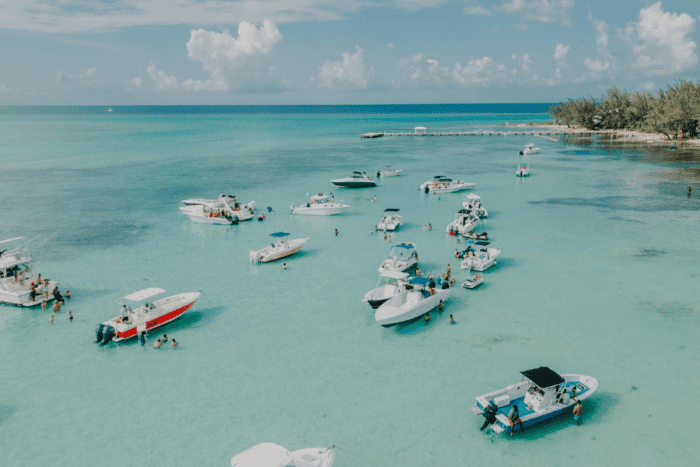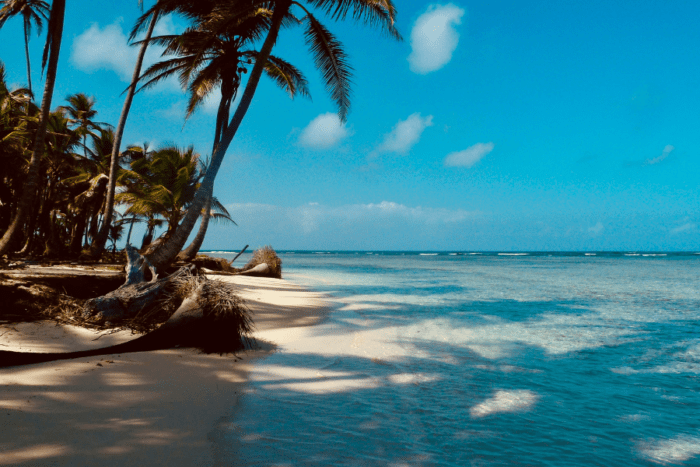How to Get Cayman Islands Residence and Pay Zero Tax
December 30, 2024
Choosing where you want to live is undoubtedly one of the most essential parts of your tax, business and lifestyle strategy.
If your goal is to minimise, or even eliminate, your tax burden, few places compare to the Cayman Islands.
A renowned tax haven, the Cayman Islands offer a hassle-free path to residence with no income, property or company taxes.
This British Overseas Territory not only provides high-quality legal services, healthcare and education but also boasts top-notch beaches and a luxurious lifestyle.
But what exactly are the benefits of obtaining residence in the Cayman Islands?
How do you get Cayman Islands residence?
Who will it suit best?
Let us guide you through all the advantages of obtaining residence in the Cayman Islands, the steps to obtaining a residence permit and why it might be the ideal choice for discerning individuals looking to maximise their financial freedom.

The Benefits Obtaining Cayman Islands Residence
Choosing the Cayman Islands as a second residence offers several unique advantages for high-net-worth individuals.
Tax-Friendliness
The main reason the Cayman Islands gets so much attention in offshore circles is that there’s no income, property or company tax.
So, you could feasibly move to the Cayman Islands, get a residence permit, become a tax resident and reduce your tax burden to zero.
And, unlike other countries that have the promise of tax-free living, the Cayman Islands offers a more accessible pathway to residence.
Live the Caribbean Lifestyle
With its beautiful island landscapes and warm climate year-round, the Cayman Islands is one of the best places to take up a second residence, especially if you’re looking to escape long winters.
Due to the influx of wealthy vacationers and expats, the Cayman Islands offer services catering to those communities.
This means you’ll find high-quality private hospitals and schools. There’s also plenty of excellent, high-end shopping, entertainment and dining options, from designer boutiques to Michelin-starred restaurants.
Unlike more remote islands like Vanuatu, it’s relatively easy to travel to and from the Cayman Islands.
The country’s only an hour from Miami by plane and boasts two international airports. If you need to return to the US or Canada every now and then, you won’t need to worry about long, expensive flights.
Overseas Territory Status
As a British Overseas Territory, the Cayman Islands offers residents and citizens political, economic and legal stability – something that can be difficult to find in other parts of the Caribbean or Latin America.
The local currency, pegged to the US dollar, is highly stable and the government takes extra care to protect its citizens’ and residents’ assets.
The legal system in the Cayman Islands is also solid and reliable. Combined with the Cayman Islands’ tax-friendliness, this stability has enticed several banks and Fortune 500 companies to establish a base there, a testament to the Islands’ reputation as a haven for business and wealth.
While things can occasionally move on island time, you won’t have to deal with the bureaucracy found in other parts of the Caribbean.

How to Get Cayman Islands Residence
Ready to pack your bags and move to the Cayman Islands?
The good news is that obtaining residence in the Cayman Islands is relatively straightforward.
However, while becoming a resident of the Cayman Islands isn’t too difficult, it does come at a significant cost.
It’s possible to qualify for residence by:
- Forming a company in the Cayman Islands and employing yourself
- Purchasing a property in the Cayman Islands worth at least US$1.2 million
- Purchasing property worth at least US$2.4 million if you want a path to citizenship.
Let’s explore these options in more detail.

Cayman Islands Residence by Real Estate Investment
There are two residence-by-real-estate-investment options in the Cayman Islands.
Aside from the monetary value of your investment, the biggest difference between the two options lies in your ability to work while residing in the Cayman Islands and the question of whether you’re eligible for citizenship.
Here’s a breakdown of each option.
Option 1: 25-Year Residence Certificate
For an investment of US$1.2 million in local real estate, you can qualify for a 25-year residency certificate.
This option is ideal for those who desire a long-term residence without the need to work or pursue citizenship. The details are:
- Investment amount: US$1.2 million
- Duration: 25 years
- Work rights: does not permit the right to work
- Path to citizenship: no path to citizenship via naturalisation
- Physical presence requirement: minimum of 30 days per year
- Main benefits: low physical presence requirement.
With this US$1.2 million investment, at least 50% needs to be invested in developed residential real estate. The remaining US$600,000 can be invested in a company or property.
For this option, you must also maintain a deposit in a local bank of at least US$500,000, or prove a passive annual income of no less than US$144,200 to show sufficient funds for you and your dependents.
Option 2: Permanent Residence
Alternatively, you can qualify for permanent residence with an investment of US$2.4 million in local real estate.
This route offers more extensive benefits, including the possibility of applying for the right to work and eventually obtaining a British Overseas Territory passport. It involves:
- Investment amount: US$2.4 million in local real estate
- Duration: permanent residence
- Work rights: permits the right to apply to work
- Path to citizenship: eligible to apply for naturalisation and a British Overseas Territory passport after five years
- Main benefits: visa-free access to around 150 countries as a British Overseas Territories citizen; ability to visit the United Kingdom for up to six months without a visa (does not confer the automatic right to live or work in the UK).
With either of these options, there are no annual property or capital gains taxes and you can acquire more than one property to meet the investment amount.
Moreover, the property purchased can be rented out to other residents without having to pay a tourist tax, offering additional income potential.
Expect to pay vendor fees of 0.45% of the purchase price and a government fee of US$1,000. There are additional fees for dependants.
Cayman Islands Residence by Company Foundation
Starting a company in the Cayman Islands grants permanent residence and can eventually lead to citizenship.
Here’s a quick overview of this option:
- Processing time: approximately five weeks
- Physical presence: not required during the setup process
- Employment requirement: must have at least one employee, which includes yourself
- Work permit: required after forming the company.
- Investment amount: A minimum investment of US$1.2 million in a local licensed business (or businesses).
On top of this, one-off company formation costs start at around US$15,000 and maintenance fees will set you back around US$6,000 a year.
Depending on your needs, various types of business entities can be formed. Additionally, the company owner is not required to spend time in the Caymans while employees, including yourself, can be based on the island or in any other country.
There are three steps to incorporate your business in the Cayman Islands:
- You will need a local attorney or corporate services provider to help you incorporate
- Once approved, you can apply for a trade licence and work permit via an online portal
- You will also need to register with local health insurance and a pension provider.
The primary benefit of company formation in the Caymans is that there is no direct taxation there – no corporate tax, capital gains tax, profits tax or wealth tax.
Its legal system is based on British law and is internationally recognised. On top of this, it has a robust compliance regime and world-class infrastructure.
Cayman Islands Residence by Substantial Business Presence
When you invest in a Cayman Islands business or are employed in a senior management position, you may be eligible to apply for a Cayman Islands Residence Certificate through ‘Substantial Business Presence’.
To establish this, there are two main pathways:
- Ownership: You must own at least 10% of shares in a business within an approved industry (primarily financial and legal services)
- Senior management: Alternatively, you can establish a ‘Substantial Business Presence’ if your employer can verify that you work in a senior management position.
Qualifying individuals receive a 25-year renewable residence permit and the right to work in the Cayman Islands.
However, there is a physical presence requirement of 90 days per year.
Key factors to consider regarding this residence option:
- Application fees: US$600
- Post-approval fee: US$6,000
- Additional costs: US$1,200 per dependent, payable annually, plus varying annual work permit fees based on industry and employment capacity.
This pathway offers substantial benefits, including a renewable residence permit and work rights, making it an attractive option for qualified investors and senior managers.
Getting Cayman Islands Citizenship
When deciding whether to get a second residence, one issue you should always consider is whether you’ll eventually be able to obtain citizenship in that country.
In the Cayman Islands, you can obtain British Overseas Territories citizenship if you acquire permanent residence first. Other qualifications include:
- Living in the Cayman Islands for the majority of the past five years
- Not leaving the Islands for more than 90 days at a time
- Having a clean police record.
However, depending on your chosen route, this can come at a substantial cost.

Cayman Islands Residence by Investment: FAQs
Through our recommended option of investing in real estate, the costs begin at US$1.2 million, rising to US$2.4 for those interested in citizenship. For entrepreneurs, starting a Cayman company can grant residence with fees in the region of US$15,000 plus annual maintenance of US$6,000.
The company formation residence by investment option in the Caymans offers an attractive zero-tax regime for foreign corporations. Its business-friendly environment offers quick incorporation, excellent financial services and a supportive infrastructure.
Yes. If you become a permanent resident and then acquire citizenship, the Caymans will grant you a British Overseas passport and allow you to retain any other nationality.
The Cayman Islands currently does not have any direct taxation. This means that most businesses and people do not pay taxes on income, property, capital gains and corporate profits.
Yes, the Cayman Islands are often referred to as a tax haven, due to their lack of direct taxation and strong privacy laws. It’s important to note that while the term ‘tax haven’ sometimes carries negative connotations, it’s perfectly legal to take advantage of favourable tax systems.
Life in the Cayman Islands is a blend of sun-drenched days, pristine beaches and a laid-back Caribbean rhythm. While the cost of living can be quite high, the quality of life is exceptional, with excellent infrastructure, a safe environment and a welcoming expat community.

Is Cayman Islands Residence the Right Option for You?
Cayman Islands residence offers the benefits of a favourable tax environment and a high quality of life.
However, it’s not suitable for everyone.
The initial investment for residence is substantial and, on top of that, the cost of living is high as most goods are imported.
Cheaper second-residence options are available on other Caribbean islands, Asia and Eastern Europe, often for less than US$100,000.
Still, despite the costs, Cayman Islands residence can be advantageous for those who can afford it.
For example, US citizens with significant passive income could benefit from this residence as part of a broader strategy to renounce US citizenship and lower their tax burden.
Ultimately, whether Cayman Islands residence is right for you depends on your unique needs and circumstances. While island life is appealing, there may be better options, and we can help you find them.
At Nomad Capitalist, we specialise in helping seven- and eight-figure entrepreneurs and investors create bespoke strategies tailored to their goals.
Our global network of experts, including lawyers, estate agents, accountants and tax specialists, ensures that your plan is comprehensive and effective. Discover how we do things here.


How to Get UAE Citizenship – The Complete Guide
Sovereignty – both national and personal – shapes ambition, secures wealth, and defines status in a shifting global order. For the high-achieving global citizen, acquiring a second or even third passport is more than a lifestyle upgrade; it’s a strategic move in long-term financial and geopolitical positioning. But not all citizenships are created equal – […]
Read more

A Gateway to Central Asia: New Kazakhstan Golden Visa Program for 2025
Central Asia just raised the stakes in the golden visa game. In May 2025, Kazakhstan officially launched a 10-year Golden Visa program in an ambitious move to position the country as a serious contender in the global investor migration space. At a time when other international regions are rolling back their citizenship and residency options, […]
Read more

Top Countries Offering Golden Visas in 2025
Residency is no longer about lifestyle – it’s about leverage In an increasingly unpredictable world, Golden Visas offer something most governments can’t: certainty in exchange for capital. They are more than migration tools; they are strategic safeguards offering residence rights, future citizenship, global mobility, and access to tax-friendly jurisdictions. For investors, entrepreneurs and globally minded […]
Read more




